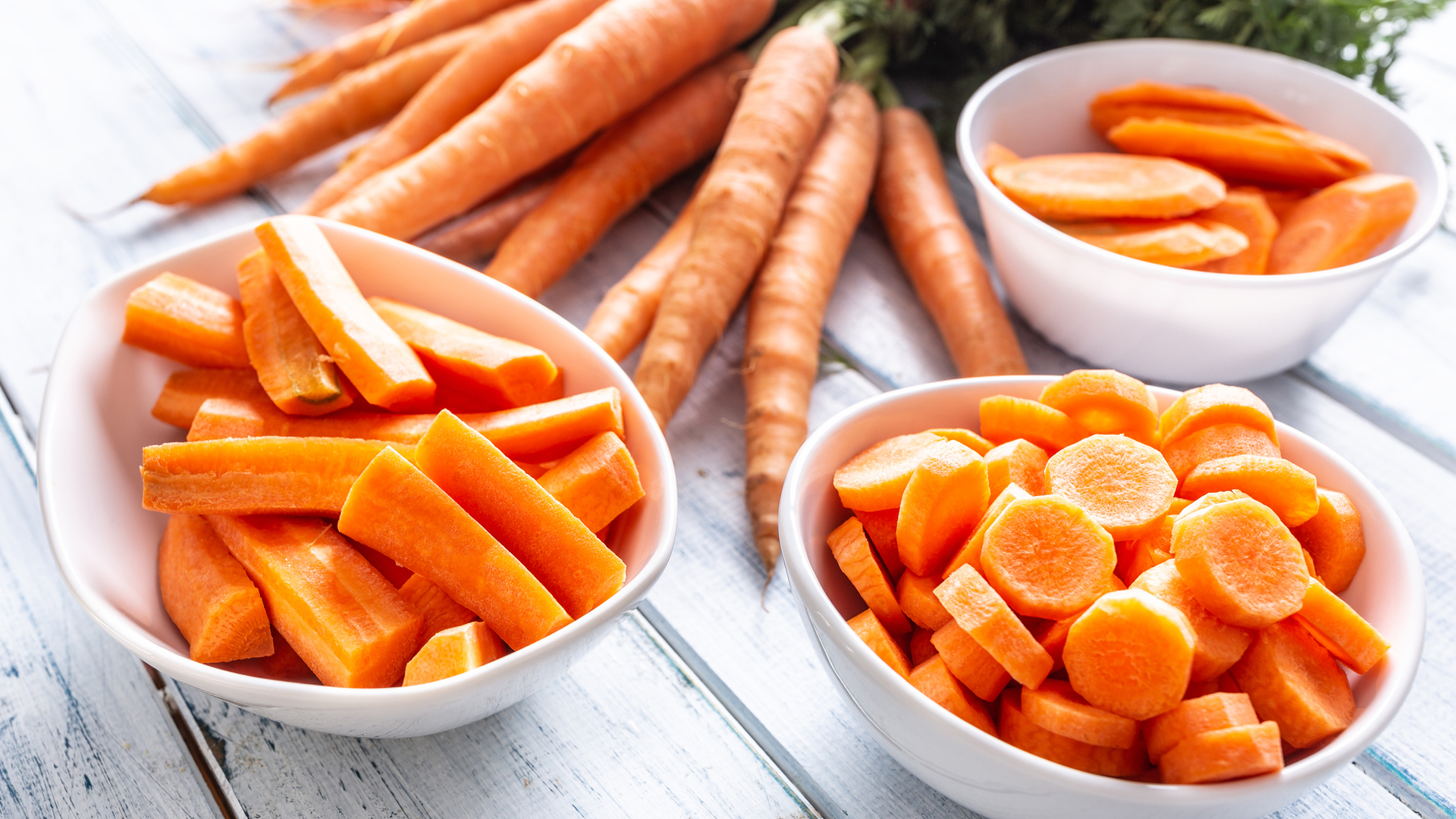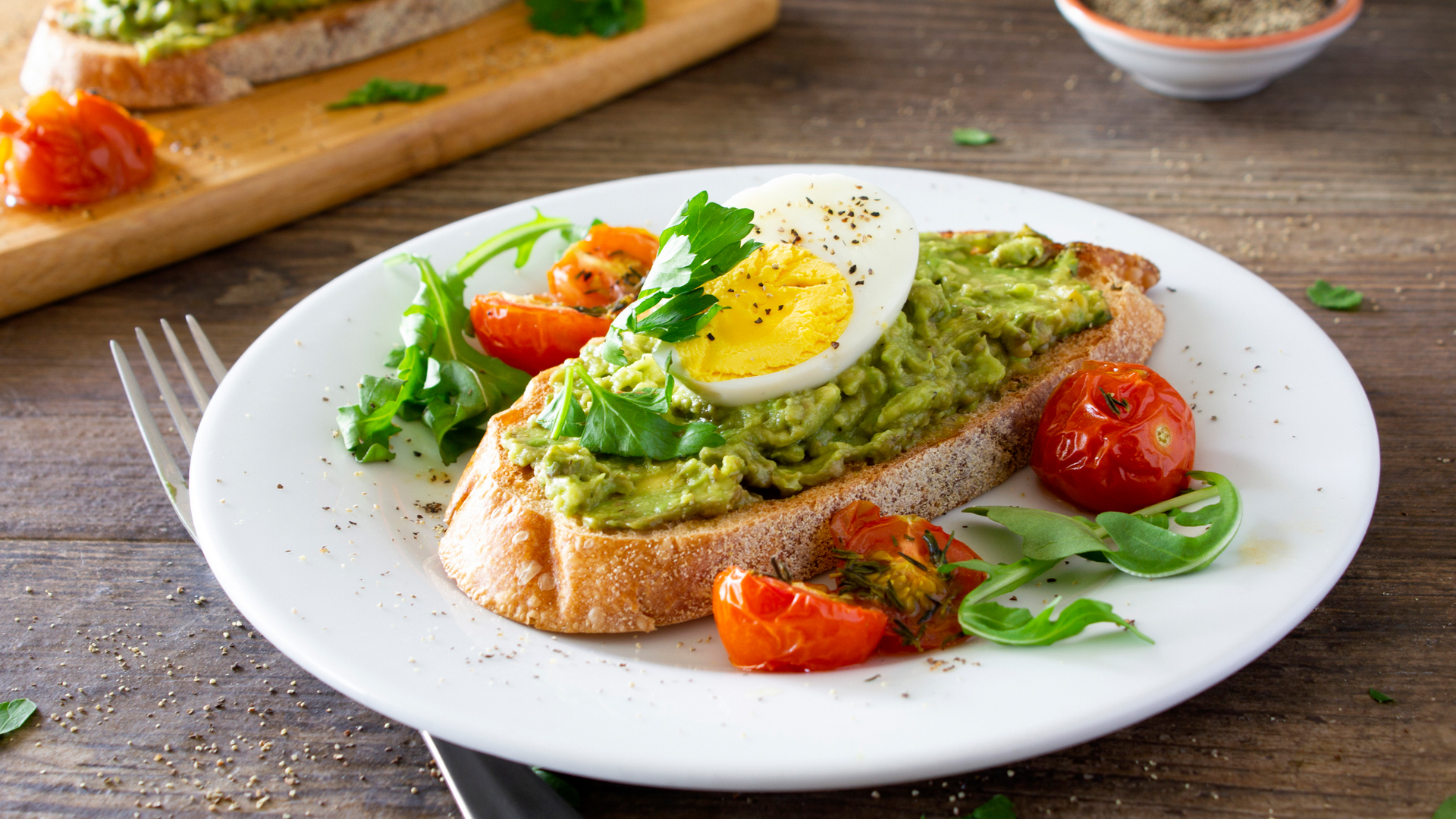Which vegetables are good for diabetics?
We take a look at the best and worst vegetables for diabetics, to give you a head start on your diabetes diet

Vegetables are good for us, but are there any in particular that are good for diabetics? Diabetes is a complex condition, split into types: type 1 diabetes and type two diabetes. Both are related to the hormone insulin, which is made in the pancreas and is responsible for helping our bodies to use glucose (sugar) for energy and regulating blood sugar levels.
We will look at which vegetables are good for diabetics, which vegetables should be restricted and ways that you can easily incorporate more vegetables into your diet. We’ve also spoken to two medical experts who have given us their advice for a successful diabetes diet and explained why diet is vital for the management of the condition.
If you prefer sweet over savory, we’ve also put together a guide to the best fruits for diabetics.
Vegetables to include in your diabetes diet
Dr Tariq Mahmood, a medical doctor and a medical director at Concepto Diagnostics, encourages those with diabetes to consider a largely plant-based diet. “While starting a vegetarian diet isn’t a direct treatment for diabetes, the multitude of health benefits can be helpful for diabetics,” he says. “Diet is crucial in managing diabetes as the amount of carbohydrates you consume affects your blood glucose levels the most. It cannot be understated how important it is for someone living with diabetes to educate themselves on the dangers of eating certain foods, particularly those packed with free sugar.”

Dr. Tariq Mahmood has nearly 30 years of experience in ultrasound, paediatrics, general medicine/surgery, radiology, orthopaedics and obstetrics. He earned his bachelor's degree in Medical and Surgery from the Nishtar Medical College Multan in Pakistan in 1988 and spent seven years as a trainee radiologist after graduation before embarking on a career as a sonologist, sonographer, and ultrasound practitioner in the U.K.
A review in the journal Nutrition found that a diet low in carbohydrates can support those with diabetes, as a low-carb diet reliably reduces high blood glucose levels, and has been shown to reduce or eliminate the need for medication. An easy rule to remember is that vegetables that grow above ground are generally low carb, and those that grow below ground are high-carb. There are some exceptions, such as butternut squash, which grows above ground but is quite high in carbohydrates. Summer squashes are lower in carbs and a better alternative for diabetics.
Dr Deborah Lee, MD, from Dr Fox Online Pharmacy, says the best vegetables for diabetics include:
- Green leafy vegetables, such as cabbage, greens, broccoli, brussels sprouts, spinach and kale
- Asparagus
- Green beans
- Eggplant
- Peppers
- Celery
- Mushrooms
- Legumes, such as chickpeas, lentils and beans
- Tomatoes
- Onions
- Cucumber
“Although fresh vegetables are likely to have the best nutritional value, tinned and frozen vegetables are also highly nutritious and are an excellent alternative,” adds Lee.
Get the world’s most fascinating discoveries delivered straight to your inbox.

Having worked for many years in the NHS, initially as a GP, and then as Lead Clinician for an integrated Community Sexual Health Service, Dr Deborah Lee now works as a health and medical writer, with an emphasis on women’s health. She is a menopause specialist.
Vegetables to avoid in your diabetes diet
Mahmood tells us that some vegetables in particular might be a problem for those with diabetes. “Starchy vegetables, such as corn, potatoes and yams, are packed full of carbohydrates and, as a result, affect your blood sugar levels,” he says. “In particular, boiled potatoes have a high glycaemic index rating of 78. This doesn’t mean that these vegetables are totally off-limits for diabetics – they can still be enjoyed in the appropriate portions – but again, it’s vital to be aware of exactly what you’re eating.”
According to Lee, the following vegetables should be consumed in moderation on a diabetes diet:
- Potatoes
- Sweet potatoes
- Butternut squash
- Yams
- Sweetcorn
- Vegetable juice (as it is concentrated, it is high-carb)
- No more than one heaped tablespoon of tomato puree

Easy ways to include more vegetables in your diet
- Try our 14 ways to eat more vegetables for breakfast
- If you don’t like the texture of whole vegetables, blend them into a sauce – you won’t be able to taste them unless you use large quantities. Blended cauliflower can be masked in a cheese sauce, and tomatoes, onions, eggplant and mushrooms can be blended into a rich red sauce that’s great for bolognese, pizza and as a base for curries, enchiladas and more.
- Make a habit of snacking on vegetables: swap out high-carb chips and dip for a crunchy alternative, such as peppers, celery or cucumber with a legume-based dip like hummus.
- Add color to your plate: if your meal is looking a little beige, steam some green beans, asparagus or broccoli for an easy, filling side dish.

How can diet help to manage diabetes?
A review in the Medical Clinics of North America journal indicates that consistency with caloric and carbohydrate intake in particular can be helpful in the management of diabetes. Another review, in Vnitrní Lékarství, a Czech community medical journal, found that a low-carbohydrate diet has shown positive results in the treatment of diabetes, pre-diabetes, metabolic syndrome and obesity. The review indicates that a low-carb diet can lead to weight loss, lower medication doses, and in some cases the remission of type 2 diabetes when consumed under medical supervision.
Mahmood explains that low GI vegetables are great for diabetics and those at risk of developing diabetes. “Adopting a diet full of fruits, green leafy vegetables, legumes, nuts and whole grains can help lower the risk of type 2 diabetes,” he says.
“A moderate intake of plant-based proteins is also associated with a decreased risk, while a high intake of animal-based proteins is associated with a higher risk. People living with diabetes should look to avoid vegetables with a high GI rating, as the body absorbs blood sugar from those foods much quicker compared with low-GI foods. This includes artichokes, asparagus, broccoli, celery, cauliflower, eggplant/aubergine, green beans, lettuce, peppers, snow peas and spinach.”
The DASH diet and the Mediterranean diet are both recommended to aid in the treatment of insulin resistance by a review in the journal of Advances in Clinical and Experimental Medicine. Insulin resistance is often found in those with prediabetes or type 2 diabetes.
This article is for informational purposes only and is not meant to offer medical advice.

Lou Mudge is a health writer based in Bath, United Kingdom for Future PLC. She holds an undergraduate degree in creative writing from Bath Spa University, and her work has appeared in Live Science, Tom's Guide, Fit & Well, Coach, T3, and Tech Radar, among others. She regularly writes about health and fitness-related topics such as air quality, gut health, diet and nutrition and the impacts these things have on our lives.
She has worked for the University of Bath on a chemistry research project and produced a short book in collaboration with the department of education at Bath Spa University.
 Live Science Plus
Live Science Plus





